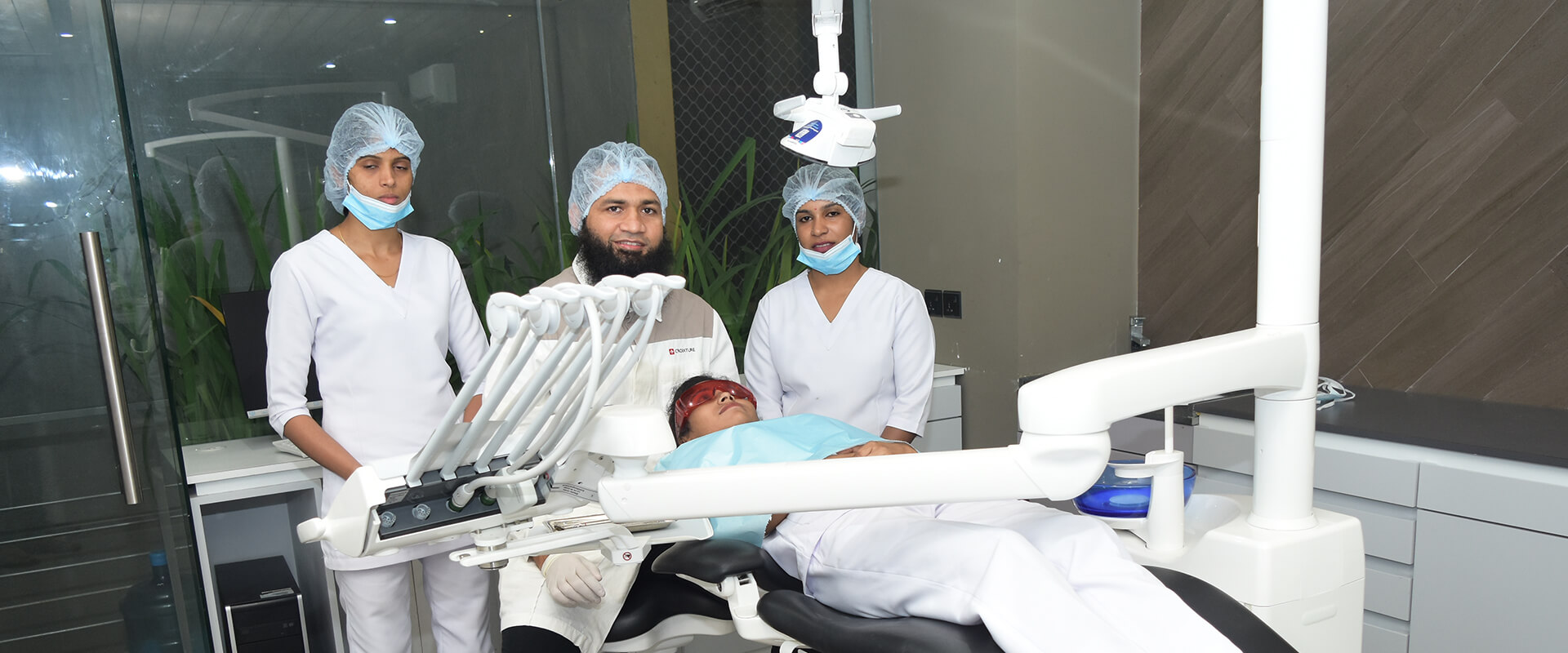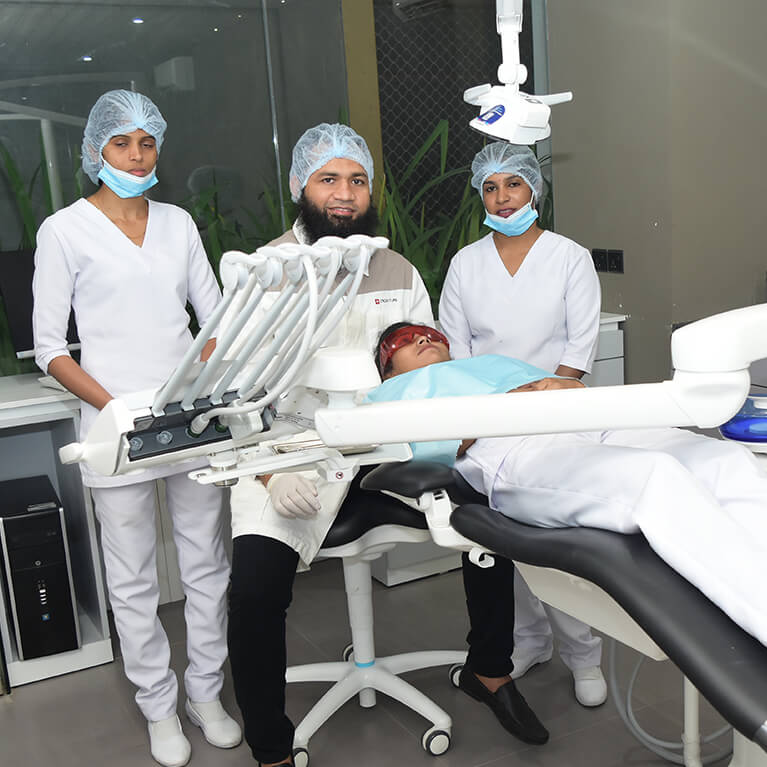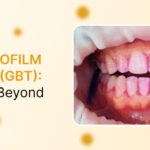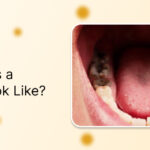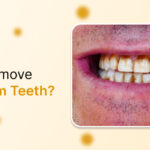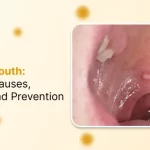What causes pain in teeth fixed with dental crowns?
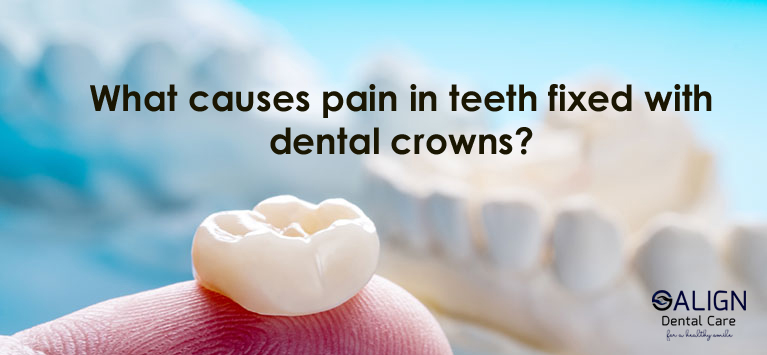
When you seek in-office dental care to fix cracked, broken teeth or severely damaged teeth, dental doctors place a tooth crown on top of the problematic tooth. Moreover, dental crowns are mandatory to enclose the root canal filled tooth. Dental crowns are tooth-shaped caps that can be mounted over the tooth surface to regain its appearance and strength.
Cementing a dental crown on a damaged tooth does not mean the treated tooth is no longer vulnerable to dental ailments. It is also susceptible to infection because of the tooth’s remaining portion present beneath the prosthetic appliance.
Read More…What are the common tongue problems and Why do they occur?
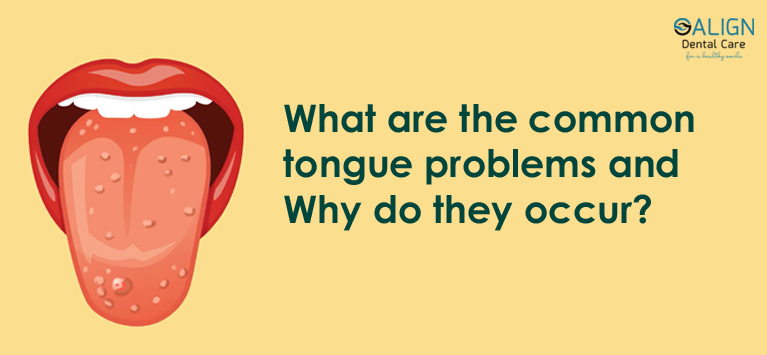
The tongue is a muscular organ with no intrinsic bones and it is covered with lingual membranes. The upper surface of the tongue contains small bumps called Papillae that give the tongue its rough texture. The taste buds also present between the small nodules present over the surface and base of the tongue. Apart from sensing the taste of a dish and communication, the tongue plays a crucial role in breathing as well. Moreover, tongue aids in maintaining the shape of our mouth and face.
Read More…What is meant by orofacial cleft?
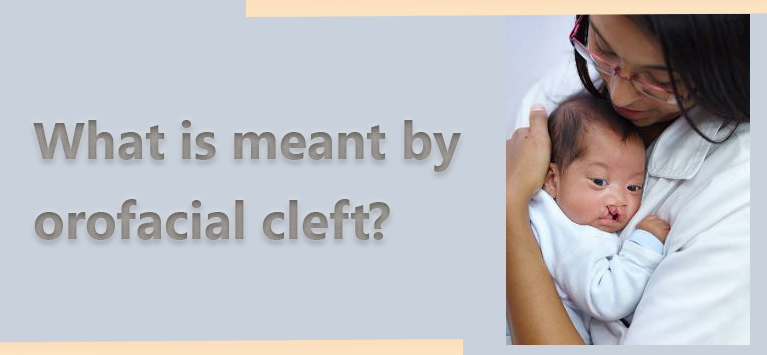
This abnormality is caused by the combination of environmental and genetic factors, resulting in a reduced quality of life. Managing this irregularity involves a team that includes a speech therapist, cleft surgeon, orthodontist, dentist, etc. This study includes reviewing the different orofacial clefts literature, discussing genetic-based problems, related syndromes, and managing them. Prospective mother counseling should be encouraged to ensure that the early signs of the abnormality are prevented. To build awareness about its preventive steps, information on orofacial clefts must be promoted. More research needs to be placed on cleft genetics studies to determine possible risk factors that may predispose individuals to the disorder.
Three variants of this disorder can be found:
- Cleft lip
- Cleft palate
- Cleft lip and palate
Cleft lip
The lip develops during the fourth and seventh weeks of pregnancy. During pregnancy, as a baby grows, special cells and body tissue and from each part of the head develop towards the middle of the face and come together to form the face. This tissue joining makes facial features, such as the mouth and the lips. If the tissue that forms the lip doesn’t fully join before birth, a cleft lip occurs. This results in the upper lip opening. The gap in the lip may be a tiny slit, or it can be a wide gap that goes into the nose via the lip. A cleft lip will be on one or even both sides of the lip, or in the center of the lip, very rarely occurring. Children with a cleft lip may have a cleft palate too.
Cleft palate
The mouth roof (palate) is developed during the six to nine weeks of pregnancy. A cleft palate occurs during pregnancy when the tissue that forms the mouth ‘s roof doesn’t completely fit together. In certain babies, the front and back sections of the palate are free. Just a portion of the palate is open to other babies.
Cleft lip and palate
Cleft lips and cleft palates together are also known as orofacial cleft. This is a group of disorders that comprises cleft palate, cleft lip, and both together.
Causes and Risk Factors
The reasons for the orofacial clefts are undetermined among most infants. Some kids get a cleft lip or cleft palate due to changes in their genes. Cleft lip and cleft palate are probably caused by a set of genes and several other factors, such as factors the mother interacts within her environment, or the things she eats or drinks, or some of the medicines she uses during pregnancy.
- Women smoking during pregnancy period are more likely to have an orofacial cleft on their baby than women who don’t smoke.
- Women diagnosed with diabetes before pregnancy have a higher chance of raising a child with a cleft lip with or without a cleft palate compared with women without diabetes.
- Women who have used certain medicines for the treatment of epilepsy, such as valproic acid or topiramate, have an increased risk of having a baby with cleft lip with or without cleft palate during the first 3 months of pregnancy compared with women who did not take these medicines.
Diagnosis
Early diagnosis includes the following:
- Ultrasounds
- MRI
- Amniocentesis to test for abnormalities in the chromosome.
Administration and Treatment
Typically, surgery to correct a cleft lip happens during the first few months of life and is prescribed during the first 12 months. Surgery is recommended for fixing a cleft palate within the first 18 months of life, or sooner if possible. As many children grow older, they will need additional surgical procedures. Surgical repair will enhance a child’s face look and appearance, and may also improve the breathing ability, speech, hearing, and language.
Call us 0777242476 @ or book an appointment for any orofacial cleft problems
Dental care tips on handling broken teeth
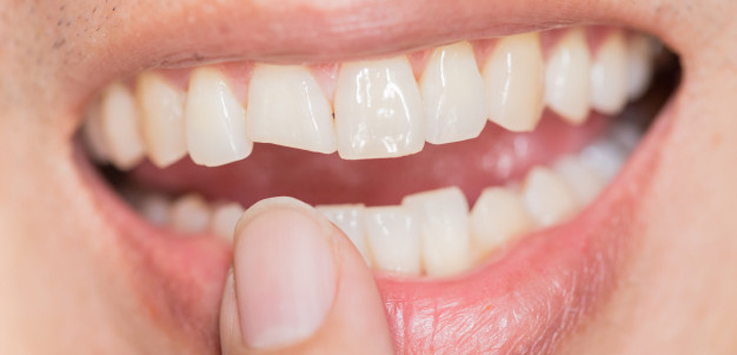
Chipped teeth may happen eventually from biting a piece of ice or hard candy, or if there is an accident or fall. Teeth are coated with very solid enamel, but that does not always secure your teeth from injury.
Accidents, biting hard things, and falls can lead to cracks, particularly on thinner teeth or teeth that are already decayed or injured.
Don’t suffer if you see yourself with a chipped tooth. It’s essential to remain calm and understand that there are several things your dentist can do to rebuild your smile.
Below are some tips on dental care
Caring for a cracked or chipped tooth
Rinse your mouth with hot water to disinfect the area, and put a cold compress to the face to reduce any swelling. Every person with a broken or chipped tooth must consult a dentist immediately to prevent further loss, breakage, or infection. You can contact us at 0777242476 for emergency appointments on the same day.
Handling the pain
Cracked, chipped, and broken teeth can be really painful. Use acetaminophen or some other over-the-counter pain reliever to treat the pain as instructed, and continue to use a cold compress.
Sharp edges
If the damaged tooth has a jagged or sharp point, it can be covered with a slice of sugarless chewing gum or wax paraffin. It is only a temporary patch to prevent it from damaging your tongue or inside the lip or cheek until it can be fixed.
Eating with a cracked tooth
If you have a chipped or cracked tooth, we suggest making an appointment to visit us as quickly as possible. It’s not easy, though, sometimes. If you like to eat, pick only foods that are soft and stop chewing or grinding a broken tooth. Swish your mouth with water and brush if you like to keep the mouth fresh.
Broken teeth treatment
Treatment of a chipped, broken, or missing tooth can change based on how badly it is affected. Tiny pieces of cracked enamel may typically be replaced in a single visit to the office. A more seriously damaged tooth can require a longer procedure. Chipped teeth are commonly patched by curing with a tooth-colored composite resin, but we can suggest other treatments based on the area and extent of the split.
Chipped and broken teeth may be distressing, but they’re quite normal and easy to restore when taken care of immediately. If you’re in pain, please contact us today or book an appointment immediately.
Tips to prevent dry socket after extracting a tooth
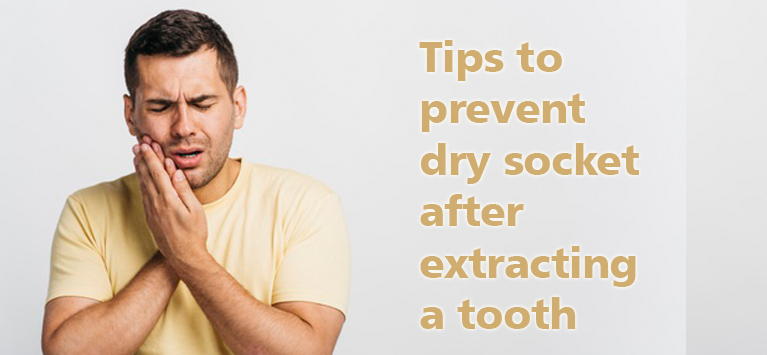
Once a tooth is extracted by the dentist, the body produces a blood clot to preserve the newly exposed nerves and bones.
If the clot is disrupted, the bones and nerves are left exposed to bacterial infection and pain.
It not only delays the healing process, it can bring you extreme distress, with pain pulsating from your mouth and all over your face.
As per the American Dental Association (ADA), your dentist may install new dressings to help enhance clotting and boost healing, but it is better to follow dry socket prevention to eliminate the problem.
Prevention methods
Dry socket protection isn’t too challenging; you’ll probably return to normal as long as you care about the extraction area properly. Follow the below steps to maintain your extraction area healthy and clean during the healing process.
Drinks and foods
You may not think about eating immediately after the extraction, but then when you begin to feel hungry, switch to soft foods, and it is important to chew on the opposite side of the extraction site. Drink a lot of water but avoid caffeinated, sugary or alcoholic beverages. Sucking through straws will remove the blood clot, hence, avoid using straws until your dentist recommends.
Use of Tobacco
The use of Tobacco is one of the major reasons for dry socket. If you smoke or chew tobacco within forty-eight hours of surgery, it will slow down the healing process and result in severe pain. Smoking advance bacteria into the area, while tobacco chewing interrupts the healing clot.
Hygiene
You should wait for about twenty-four hours before cleaning the area of the extraction to allow the formation of the clot and star safeguarding the extraction area. Instead, you can softly brush other teeth and tongue. A day after extraction, rinse your mouth gently with an antibacterial mouthwash to eliminate germs that may affect the extracted area.
Relax
Try to take rest after extracting your tooth. You will probably want some time to wear off the anesthesia effects, and it may feel drowsy or tired. Stop playing sports or taking part in physical activity that might interrupt your mouth. Getting back to your daily activities may require a few days, but you can still experience some residual pain and be stressed. You can use acetaminophen or ibuprofen. In case the pain gets worsen, spreads through face, or is followed by redness, swelling, and fever, contact your dentist immediately.
An extraction of the tooth may be nerve-racking, but by following the advice of your dentist or oral surgeon, your healing will be uneventful. Dry socket will disturb the healing process, so ensure you’re mindful of your drinking, eating, and sanitation habits in the days after your extraction, so that it will be easy to prevent the issue entirely.
Suffering from a toothache? Call us immediately or book an appointment now.
Natural remedies to cure mouth ulcers
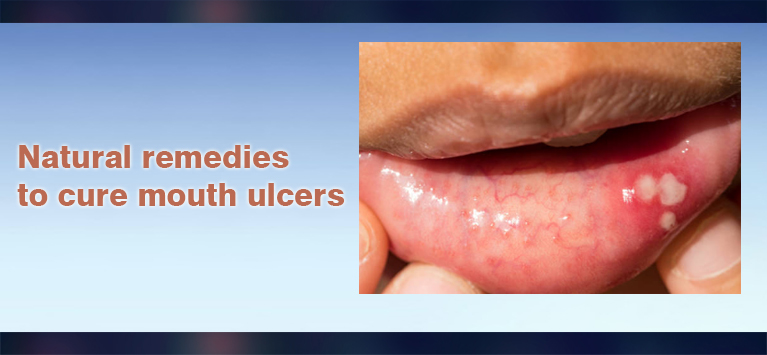
Mouth ulcers may look tiny in their appearance, but the pain and discomfort they cause is huge. They make it difficult for the person to drink, eat, or even speak. Within one to two weeks they will heal themselves, however following these natural home remedies will relieve the pain and boost up the healing process.
Saltwater rinse
Rinsing your mouth with salt water is one of the best treatments for mouth ulcers. Simply take a glass of water and add a tablespoon of salt in it. Swish it around your mouth for a few seconds and spit the water out. The antiseptic and anti-inflammatory property of saltwater quickly heals the canker sores.
Honey
This magical ingredient has a lot of health benefits and available easily too. They are great in healing the wound, which helps the ulcer also to heal quickly. Not only this, but it will also reduce the pain and decrease the reddening of the ulcer.
Turmeric paste
You would have already known about the healing properties of turmeric as it contains a compound called Curcumin. Take some turmeric and mix it with water. Make it like a thick paste and apply on the affected area. Rinse your mouth after ten to fifteen minutes with normal water. This will rapidly heals the wound and relieve the pain.
Licorice solution
Licorice is an excellent herb with some incredible benefits. When used regularly, it has a tendency to heal mouth ulcers. Licorice mouthwash can be used for treating canker sores. To see a better result you should use it at least 4 times a day.
Baking soda
Baking soda is widely used in dentistry for teeth whitening process. They are also a very good agent in healing mouth ulcers. Mix baking soda with water and make it like a paste. Apply it on the affected area and wait until it dries. Rinse your mouth with normal water. It neutralizes the ulcer acids and boosts the healing process.
Apple cider vinegar
Mix apple cider vinegar in the water and swish it around your mouth. The acid present in apple cider vinegar kills the bacteria and heals the wound effectively.
Chamomile Mouthwash
Chamomile is one of the famous herbs used to heal mouth ulcers. Prepare a strong tea using Chamomile and cool it. Swish the tea around your mouth about 3 to 4 times a day. The flavonoids present in the tea soothe the skin and heal the mouth ulcer quickly.
Orange juice
Vitamin C deficiency is one of the major reasons for mouth ulcers. Drink orange juice daily until the wound heals because it contains a rich amount of vitamin C which effectively heals the wound quickly.
Garlic
Garlic contains a component called allicin, which is antimicrobial in nature. Simply take a garlic clove and rub it on the wounded area. Rinse your mouth after thirty minutes with normal water. Repeating this two or three times a day treats infection effectively.
Try the above methods and wait for the result. If you still have a problem consult a dentist immediately and get the best solution.
Tips to care and keep the veneers clean
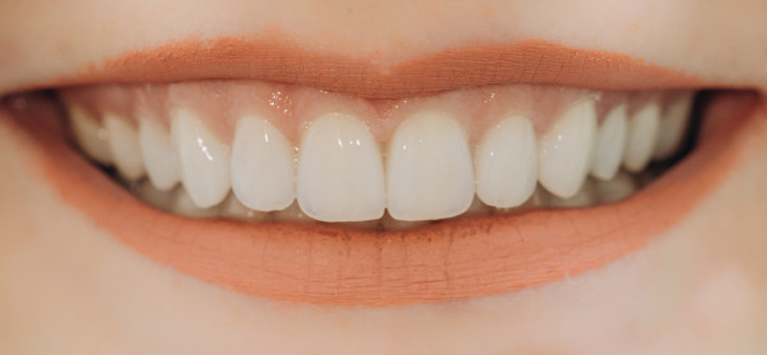
Are your teeth chipped, stained, worn down, gapped, or misaligned? Veneers are a great option to overcome these problems. Veneers are generally thin shells made up of composite raisin or porcelain bonded to the front surface of the teeth.
The biggest advantage of veneers is, it looks natural and strong when compared to other solutions like dentures. Many celebrities and models have achieved their aesthetics smile through veneers. Although they are a bit costly, they are worth money if you know how to take care of it. When cared properly, they can be used for life long too.
Meanwhile, taking care of your veneers doesn’t need special care. Here are some tips to care and keep the veneers clean.
Follow good oral hygiene
If you already following proper oral hygiene, you don’t need to worry about caring for your veneers. For others maintaining good oral hygiene is a must.
Brushing your teeth twice a day and flossing is the primary thing to maintain maximum oral health. Poor dental hygiene can result in gum diseases, and cause receding in the gum. Gum receding results in exposure of borders of veneers.
Apart from that, choosing the right toothpaste is important. Many kinds of toothpaste contain ingredients that are very abrasive for your teeth and veneers, and they stain your veneers and teeth too. Even though veneers can withstand pressure when you brush, it is always recommended to choose a soft-bristled toothbrush. After a meal, rinse your mouth once or twice a day using an antiseptic mouthwash.
In addition, visiting your dentist twice a year is recommended. So that your dentist will thoroughly examine your teeth during this time and spot the issues found in the veneers.
Wear a nightguard
Well, this is not for all! If you have a teeth-grinding (Bruxism) problem while sleeping, it is not good for veneers because it creates a lot of pressure on them. On the other hand, it is bad for your jaw joints and teeth too.
Tell about your problem to your dentist as soon as possible, and he can help you with a night guard, often said to be known as an occlusal guard. This is a great device that protects both your natural teeth and veneers.
Do not bite hard objects
Be gentle on chewing, we do not just use our teeth for eating, but also as a tool to cut food packets, opening bottles, etc., some peoples have the habit of chewing hard materials like nails, pens, etc., These are the things that have to be avoided. Besides, excessive biting of ice and chewing bones may result in a break and chip of veneers.
Watch what you eat
You should also be careful about what you eat. Eating raw apples, raw carrots, bone meat, and hard chips also cause damage to your veneers. You should reduce sugar and acid in your diet to prevent decay. Be limit on acidic foods as they wear down your enamel and be sure you are eating natural foods. Foods with added colors stain your veneers easily.
Avoid staining agents
Always beware of staining agents. Stain causing beverages and foods like red wine, coffee, tea, soy sauce, dark sodas, berries, etc., should be minimized. Another main stain-causing agent is a cigarette. You should stop smoking to prevent staining. Leaving the smoking habit is not only good for your dental health but also it is good for your general health.
Nothing will last forever, the same applies to your veneers too. They have to be replaced after some period. Visit your dentist regularly and examine your teeth. He/she will give the best advice about the replacement time of veneers. To enlarge the benefits that the veneers offer, you should maintain it properly by following these methods.
Dental health benefits of clove oil
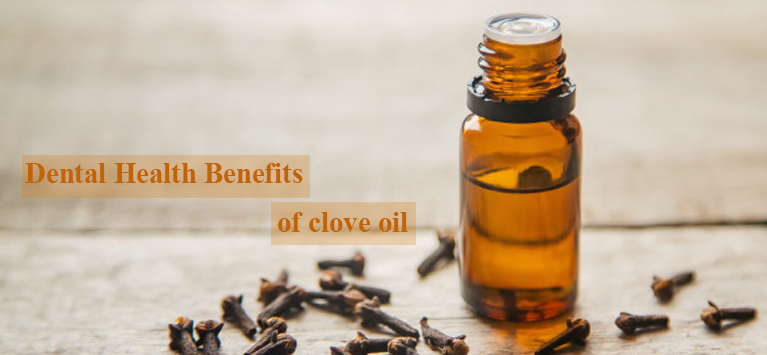
From the ancient periods, clove has been used as a natural remedy to treat various dental problems. People do not see whether it is raw clove or oil, but they continuously believe in the medicinal benefits of this spice plant to treat cavities, infection, toothache and other oral problems.
When you read those ingredients present in toothpaste or mouthwash, you should have noticed this clove oil, because it is the main ingredient, which shows its strength and benefits in oral health.
Those who think to treat their dental problem in an herbal and natural way, clove oil is an excellent option for enhancing your health of teeth and gums.
When you think of your childhood days, your grandmother would have told you to bite and hold clove where there is an ache in a tooth. Yes, our ancient people followed this technique to get rid of toothache. Here are some of the major benefits of clove oil for dental health
Clove oil for toothache
As said above, if someone has a toothache in our home, the first remedy we suggest is to keep a clove in the area where there is a toothache. Unbelievably, it will relieve some sort of pain. Dentists recommend clove oil instead of clove to save the healthy tissues in the mouth from damage.
Therefore, whenever if pain arises, take clove oil and apply a drop in the pain area, as it will relieve the pain. However, if the pain still exists, consult the dentist as soon as possible.
Clove oil for cavity
Clove oil is still used by many people to fight cavities. This remedy is very useful and effective against cavities caused by infected teeth or bacteria. Due to its anti-inflammatory and anti-bacterial properties, they can treat various oral care problems.
To eliminate cavities apply a few drops of oil in the affected area before going to sleep. For amazing results, try this for a week every night. Use a cotton ball to dip the oil instead of using fingers.
Clove oil for mouth ulcers
Mouth ulcers are one of the common problems that should be treated as soon as possible to avoid any severe pain in the future. Here too the benefit of clove oil plays a major role in curing this problem.
This is simple, take a few drops of clove oil and mix it with warm water. Now put this mixture in your mouth and gargle thoroughly.
Due to the anti-bacterial and anti-inflammatory properties of clove oil, it kills germs in the mouth and brings relief.
Clove oil for bad breath
Bad breath occurs due to the accumulation of germs and bacteria in the mouth. If you feel any bad odor in your mouth, you can believe clove oil due to its anti-bacterial properties to get immediate relief.
To eliminate bad breath, take clove oil, stevia extracts, and peppermint essential oil, mix all these ingredients and store it in a spray bottle. Whenever you feel the bad breath in your mouth, simply spray this mixture in your mouth to get relief from bad breath.
Clove oil for teething babies
Whenever new teeth emerge in babies, it causes pain to them. Gums become swollen and cause discomfort to them. This problem often disturbs their sleep and makes them cry. You can trust the properties of clove oil here, and it helps a lot in this condition.
If your baby is teething, take a few drops of clove oil and dilute them with water. Then apply the diluted oil in the baby’s gum. This relieves their pain and makes them sleep well.
Clove oil is one of the best natural remedies to cure any oral problems. However, you should brush and floss your teeth regularly and it is highly recommended to visit your dentist twice a year to maintain the best oral hygiene.
Tips to prevent tooth decay from spreading
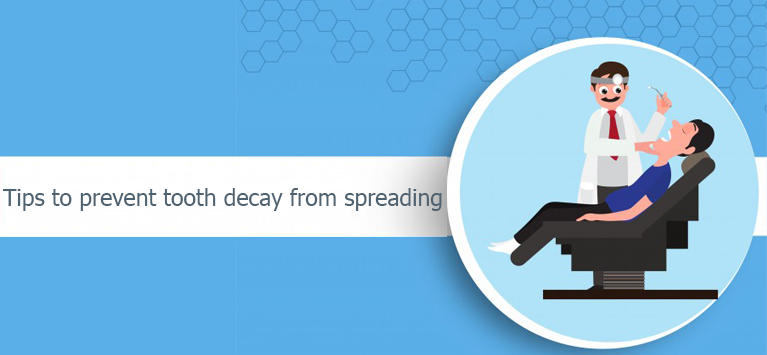
Getting a sudden unbearable pain when you bite something?
Or seeing a dark spot on your gum line when you brush your
teeth?
These are the worst feeling ever, and these are all the signs
of a cavity that needs the attention of your dentist.
Tooth decay or a cavity is a permanently damaged portion of
your tooth that has changed into an opening or hole in your enamel. The main
reason for this tooth decay is plaque, a bacterial film that continuously grows
on your teeth.
These bacteria produce acids that can wear off the surface of
the tooth. A cavity forms once the wear reaches the dentin layer underneath the
enamel.
Ways to prevent the spread of tooth decay
Mostly tooth decay is not noticeable. To say in other words, tooth decay is often not visible to our eyes during its early stages. This is the reason why regular dental checkups are necessary.
If you go to checkups regularly, your dentist can take X-rays
of your mouth and examine your teeth to ensure that your teeth are healthy.
This is the first and best method to prevent any decay.
It is not possible to restore your teeth to its original stage if the cavity occurs. If you see a cavity or sign of cavity in your teeth, consult your dentist immediately and get an appointment.
Even if you brush and floss your teeth regularly, it is not possible to stop decay from spreading. That is why visiting your dentist is important, and he can help you with a simple dental filling.
Getting a dental filling is generally painless and simple. First, the area where the tooth is affected is removed, and then the infected space is cleaned. Then using a restorative material, space is filled. This restorative material is a composite resin made from a tooth-colored material. So generally, no one can notice it.
What happens if you do not bother about decay?
As said above, tooth decay is not visible to eyes in its early stages. A tiny cavity does not take much time to convert into a dental emergency.
If the decay develops through the tooth, then the bacteria can enter into the
pulp deeply where the roots, nerves, and the dental pulp are situated,
resulting in an abscess, which is both painful and dangerous. It weakens your
tooth and results in a crack or break.
A dental filling is not possible to repair your teeth if it is abscessed or
cracked. A root canal or a tooth extraction is the next process to repair your
teeth.
Prevention method before it starts
Preventing tooth decay before it starts is the best thing to be done. Here are some of the ways to prevent tooth decay.
Drink more water
Water is the best friend to your body, where it enhances both your physical health as well as dental health. It washes away food particles that stick on your teeth, which is the main reason for the formation of plaques. Water also enables the secretion of saliva, which protects your teeth from the formation of plaque.
Limit sugar
While water is the best friend of your teeth, sugar is just opposite to it. It feeds the bacteria responsible for tooth decay. Soda, sugared gum, hard or sticky candies are the worst foods that spoil your dental health.
Follow good dental habits
You would have already known this, Brush twice a day and floss at least once a day. This is your first thing to prevent tartar build-up, plaque, and tooth decay. Always use a soft-bristled toothbrush and follow proper brushing techniques.
Visit your dentist regularly
As already said above, visit your dentist regularly. It is recommended
to visit your dentist twice a year. Apart from following good oral habits,
visiting your dentist is also important and it keeps you away from various
dental problems and saves your money in the future.
Effective home remedies to remineralize teeth
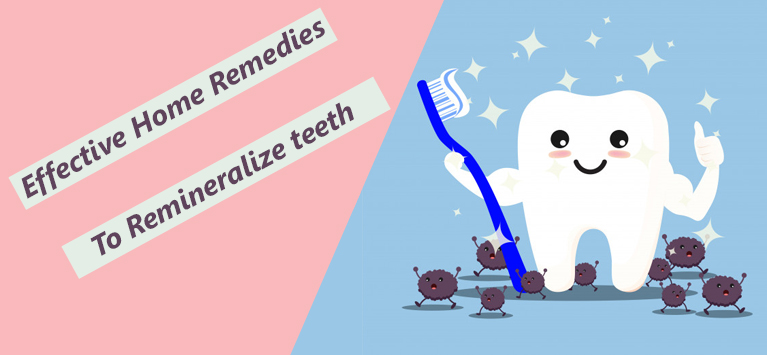
Some important minerals such as phosphate and calcium help to develop tooth enamel along with dentin and bone. These minerals also prevent the decaying of tooth and cavity formation.
When you grow older, some minerals in your teeth begin to lose. The main cause of this problem is eating sugary or acidic foods. Bacteria accumulation is the next reason. If the bone or enamel is lost, there is no way to regain them without replacing the entire tooth.
But it is possible to refill some minerals with the change in lifestyle and some home remedies before the tooth decays.
Brush with fluoride toothpaste
The first important thing to remineralize your teeth is to brush properly. Brushing your teeth removes bacteria and prevents tooth decay.
These bacteria spread through food and drinks that we consume. Brushing properly and regularly keeps bacteria away that may result in loss of minerals and cavities.
The second most important thing is to brush with fluoride toothpaste because not all toothpaste remineralizes your teeth. In fact, toothpaste doesn’t get an ADA seal of acceptance unless it contains fluoride.
Fluoride toothpaste also prevents tooth decay and strengthens your teeth. This reduces the loss of minerals in the future.
Eliminate sugar and reduce starch
You would have already known sweet is not good for your dental health. Yes, these sugars are highly acidic, and they feed some bacteria in your mouth by breaking down the enamel of the tooth.
Foods that are starchy such as rice, bread, and potato are filled with simple carbohydrates. These carbohydrates break downs into simple sugars that may erode your teeth.
Consume moderate citric fruits
Fruits may be good for overall health. Remember, most of the fruits are acidic. When coming to fruit juices, it is even worse as it contains added sugar, which breakdowns your tooth enamel. Fruits help you to enhance your body health, but it is bad for your teeth.
Vitamin and calcium is important
While this calcium is naturally produced in your teeth, it gets stripped by bacteria and acids over time. The best way to replace that calcium is by consuming calcium-rich foods.
Research says that vitamin D may help prevent cavities. Talk with your dentist to know about vitamin D supplements and calcium-rich foods.
Chew sugar-free gum
Chewing gum always plays a major role in improving your oral health. Here too comes the same, actually, sugar-free gums promote remineralization of tooth.
They also help remove plaque, carbs, and sugar from teeth and promote the secretion of saliva.
Drink more water
Dry mouth is one of the major reasons for a tooth cavity. When there is no enough production of saliva in your mouth, remineralization fails. Saliva is a major part of remineralization as it not only prevents dryness in the mouth but also it contains calcium and phosphate.
Drink more water to escape from the dryness of the mouth. Water is the best medicine to improve your overall health as well as dental health.
If you eat acidic or sugary foods, drink water immediately or rinse your mouth thoroughly to prevent the formation of bacteria. This prevents demineralization and enhances healthy teeth.
The loss of mineral in the tooth cannot be completely avoided because of the different food habits and lifestyles that we follow. But following these steps prevent demineralization plus regular dental visits can keep your teeth healthy.





